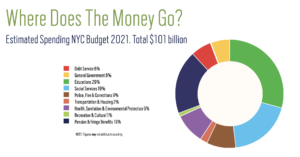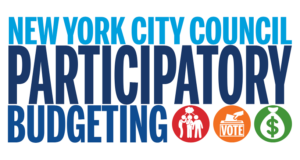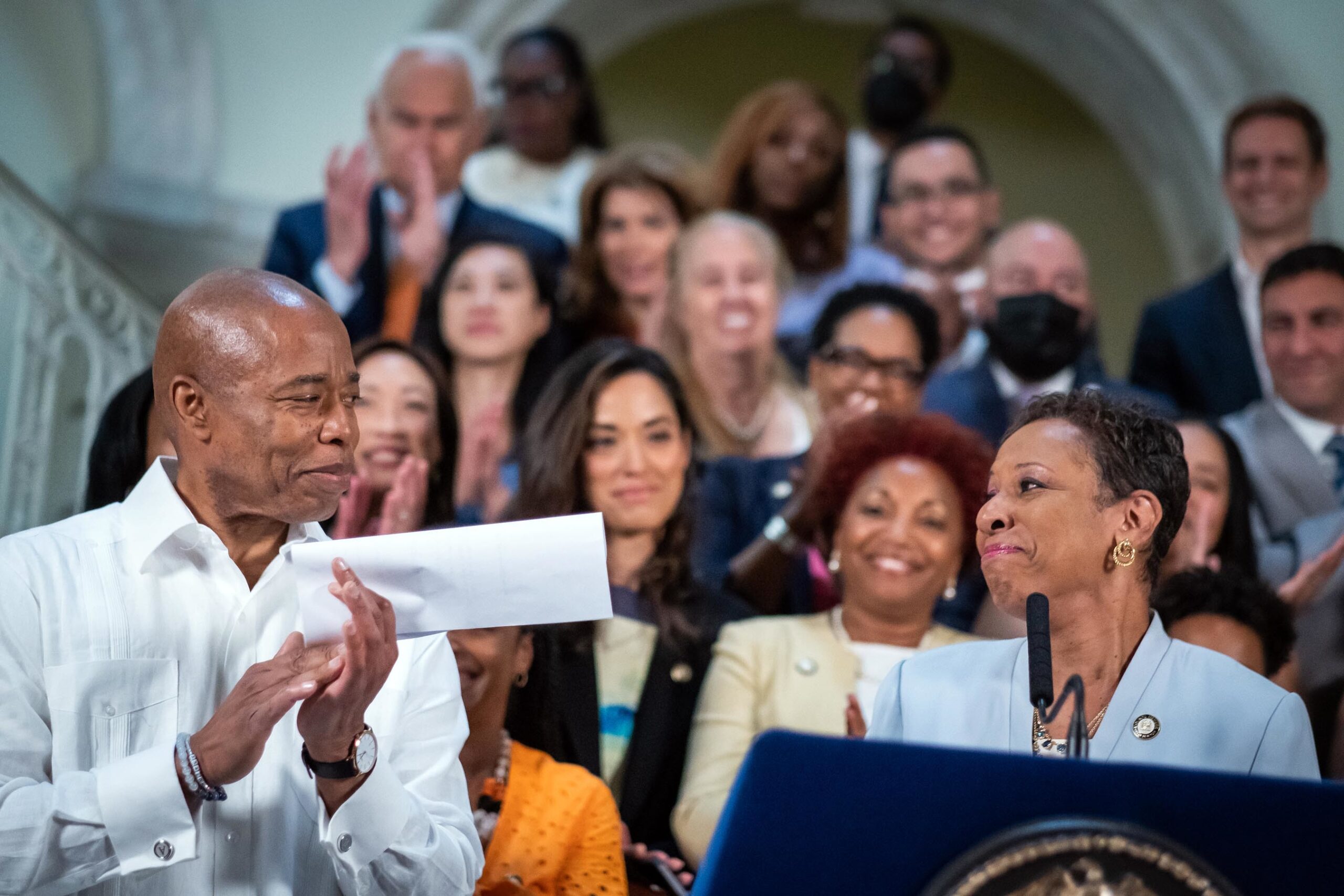What is a Budget?
In general, a budget is a financial plan. New York City’s budget is a blueprint for how the City government spends its money, outlining the City’s financial priorities and policies for the fiscal year. It includes City government’s revenues (income or money that it brings it) and expenditures (money it spends).
Three Components of the NYC Budget
1. Expense Budget: covers the cost of city agencies, including services and salaries (ex. Pays sanitation workers)
2. Capital Budget: covers long-term investments in facilities and infrastructure. (ex. Construction of public schools or parks)
3. Revenue Budget: outlines money that comes from government such as taxes, state and federal aid. Determines maximum amount in expense budget to ensure balance.
The City is required to balance its budget at the end of the fiscal year (a one-year period), which in New York City begins July 1 and ends June 30. The most recent New York City budget (fiscal year 2024) is more than $102 billion.

NYC Budget Process and Timeline
The legislative session is from September through June. Here are some highlights of the process:
JANUARY: Preliminary Budget
Every year, the Mayor presents an outline of financial priorities and goals for the city.
MARCH-APRIL: Council Analysis and Hearings
The Council assesses the preliminary budget and holds public hearings to identify concerns from constituents, advocates and city agencies.
Formal Response – The Council summarizes concerns and recommendations to the Mayor.
APRIL: Executive Budget and Hearings
The executive budget is released based on the Council’s recommendations. The Council analyzes the budget and a second round of hearings is held with the goal of making sure that the budget reflects the needs of New Yorkers.
MAY-JUNE: Adopted Budget
The Council and Mayor negotiate, make adjustments to the Executive Budget, and agree on the final Adopted Budget before July 1st, which is the start of the next fiscal year.

Get Involved: How Everyday New Yorkers Can Influence the NYC Budget
Participatory Budgeting
A democratic process that allows community members to decide how a portion of New York City’s budget is spent. In New York City, there are two ways to get involved in the participatory budgeting process: through the City Council, which is called PBNYC, and through the New York City Civic Engagement Commission (CEC), which is called The People’s Money. To learn more about participatory budgeting and ways to get involved, check out our participatory budgeting guide here!

Get Involved with Your Community Board
Under the New York City Charter, Community Boards are given the power to advise the City about local budget needs and priorities.
- To learn more about the role of Community Boards in the Budget Process, read this short article.
- To learn more about the importance of Community Boards and how to join one, check out our community board guide.
Learn More about the Budget Process and Important Stakeholders
The more you know about the budget process, how it works, and who is involved, the better you will be able to get involved. Understanding New York City’s Budget A Guide by the New York City Independent Budget Office (IBO) is a useful article for learning more.
Build Relationships and Contact Your Elected Officials
Get to know prominent decision makers, and share what you care about and how you want money to be spent. To learn more, check out our Contacting Your Elected Officials guide.
Join a Campaign or an Advocacy Organization
There is power in numbers. Nonprofit organizations and other groups have power to influence the budget process. Tip: explore the member organizations of the Advocacy Institute like Community Voices Heard to find advocacy efforts to join based on your issues or causes.
Testify at City Council Hearings
Budget hearings happen from February to May and they provide an opportunity to make your voice heard and raise awareness about your budget priorities.
Explore upcoming City Council hearings here: https://legistar.council.nyc.gov/Calendar.aspx.
Sources
“Community Participation in the Budget Process.” Manual for Participation in the Budget Process, Office of Community Board Relations, Office of Management & Budget, and Office of the Mayor. https://cbmanhattan.cityofnewyork.us/cb10/wp-content/uploads/sites/11/2021/08/summary_community_participation_budget_process.pdf
“The City Budget.” New York City Council. https://council.nyc.gov/budget/.


 Make the Switch to our new mailing list!
Make the Switch to our new mailing list!